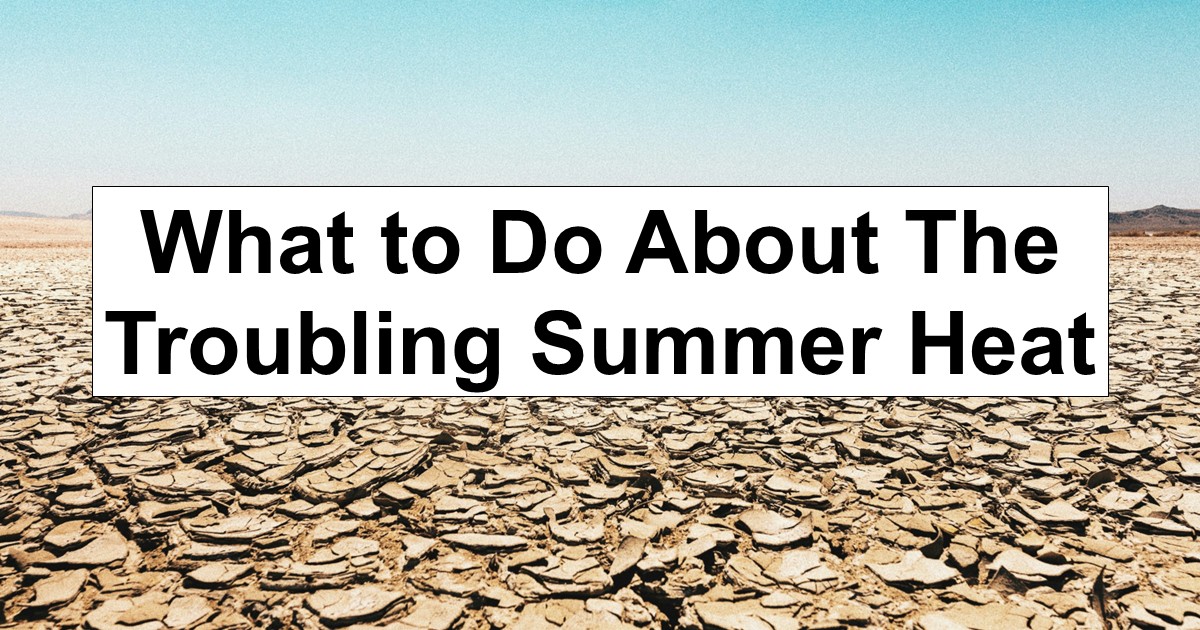Say what you will about climate change and whether we’re really on the precipice of an irreversible trajectory, but summer heat is nothing to take lightly. It can, in fact, be deadly if you live in environments where it’s already typically hot, you have health conditions that exacerbate heat-related concerns, are elderly … or if you’re like me and just don’t like being too darn hot.
I don’t know what happened, but two years ago I decided that I hate the heat. I’d much prefer having to keep warm than cool. But I can’t do much about where I live, and since the Midwest (Kansas City, specifically) gets hot enough in the summer, I realize that I need to consider what I’m going to do if the power goes out for an extended period of time during a 100+ degree spell.
The problem is that, even though I have some solar, I don’t have enough to power refrigerators, freezers, window AC units, and probably fans all at the same time. I’m going to have to consolidate refrigerators (and maybe lose some food too), choose winners and losers (e.g., cooling over refrigeration), and probably spend a lot of time managing power consumption. Perhaps one day I’ll be able to upgrade and do more, but that’s just not in the cards these days.
What got me to thinking about this again, besides the looming summer, was the following video by City Prepping:
Part of the problem, as he points out, is that our aging power grid is being pushed to the brink because of our ever-growing demand for more power to run everything in our lives, but also because the summer heat simply necessitates more power to keep cool precisely when the power grid can’t handle the stress, usually the late afternoon hours.
Although southwest states are likely to most impacted, every state is forecast to experience high than usual temperatures. So, even if your area power grid usually handles the stress, it may not be able to at some point given the right circumstances. From what I understand, the power grid is both segregate and interconnected, which means that a failure hundreds of miles away can result in power outages near you.
Moreover, like he says in the video, there’s just so much heat (and humidity) that the human body can withstand before it just can’t cool down any longer. This is when excessive heat becomes deadly for everybody despite your state of health!
Add in concerns over drought, wildfires, crop failures, and more … and we preppers really should take note.
I will briefly remind you that you should have some idea of how to stay cool when the power goes out, have a way to run fans or small air-conditioning units, and have the ability to keep your food from spoiling … though you probably already know all this. You can watch the video to get specifics.
But I will remind you that now is the time to think about these types of potential problems and all the more reason to do something about it because after-the-fact is one day too late.

Leave a Reply